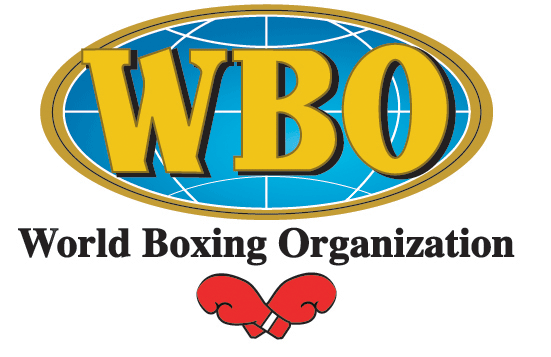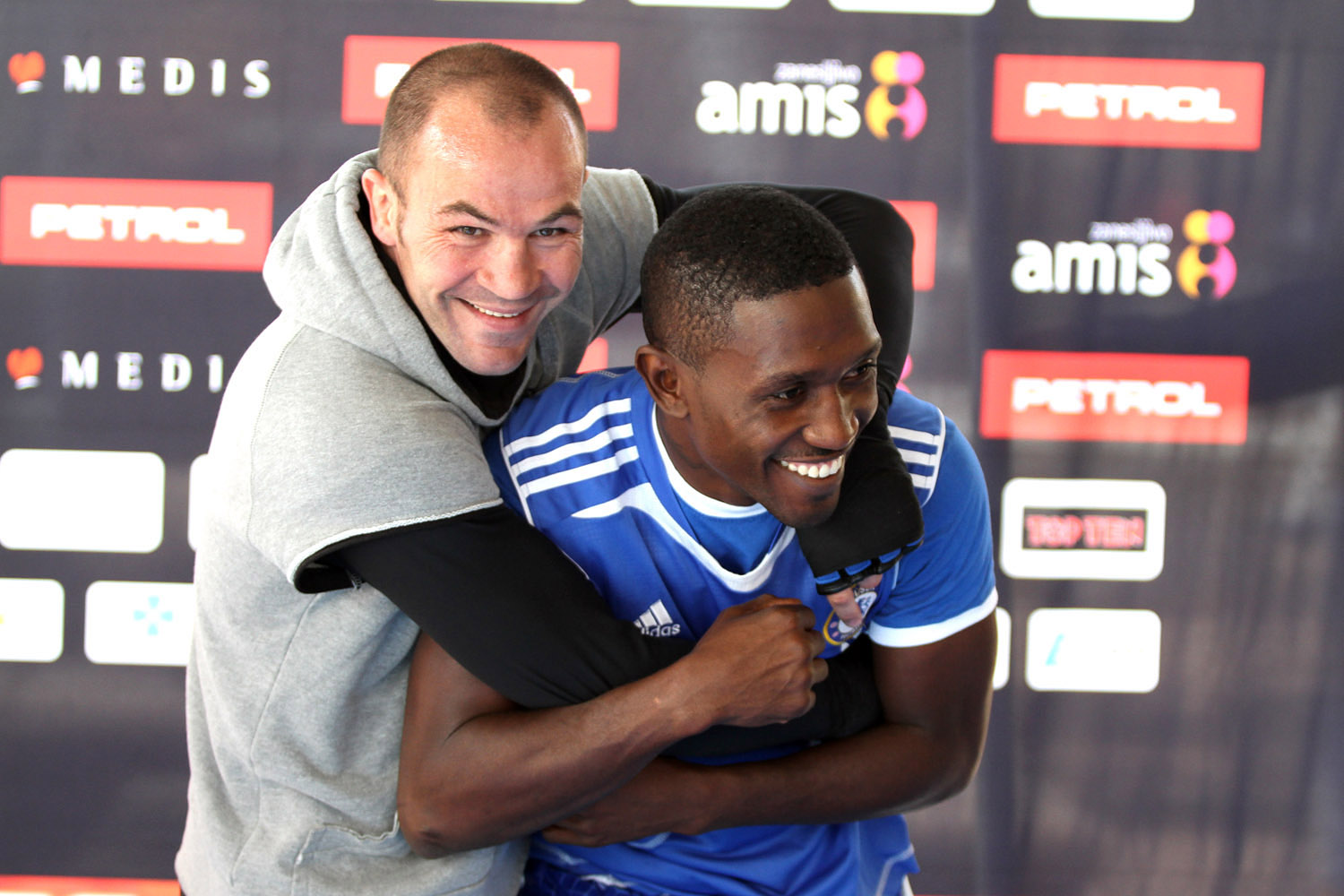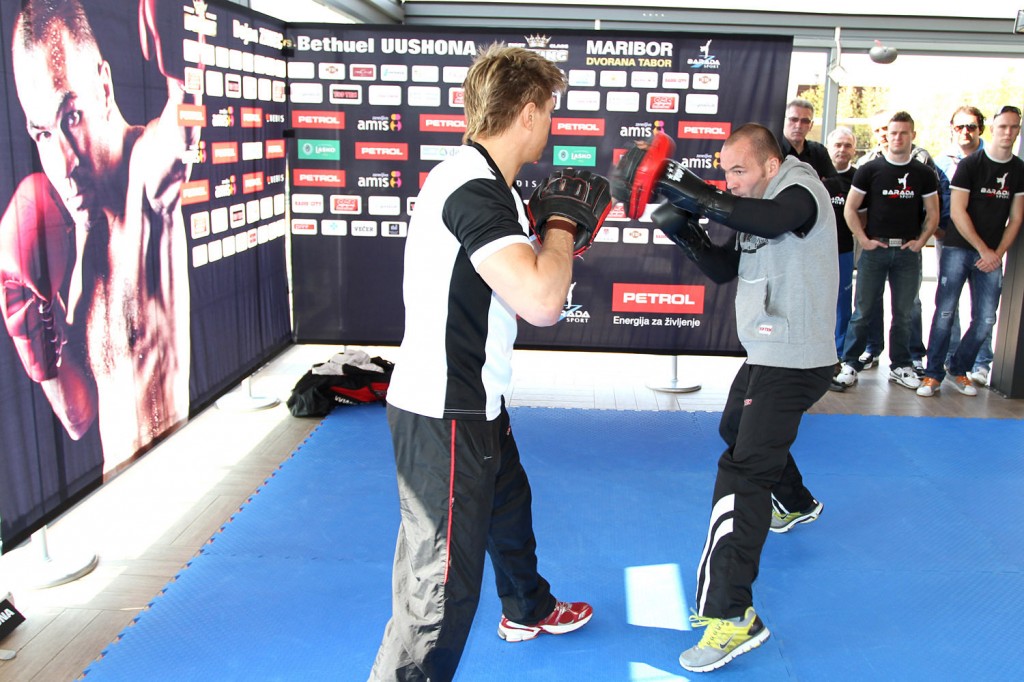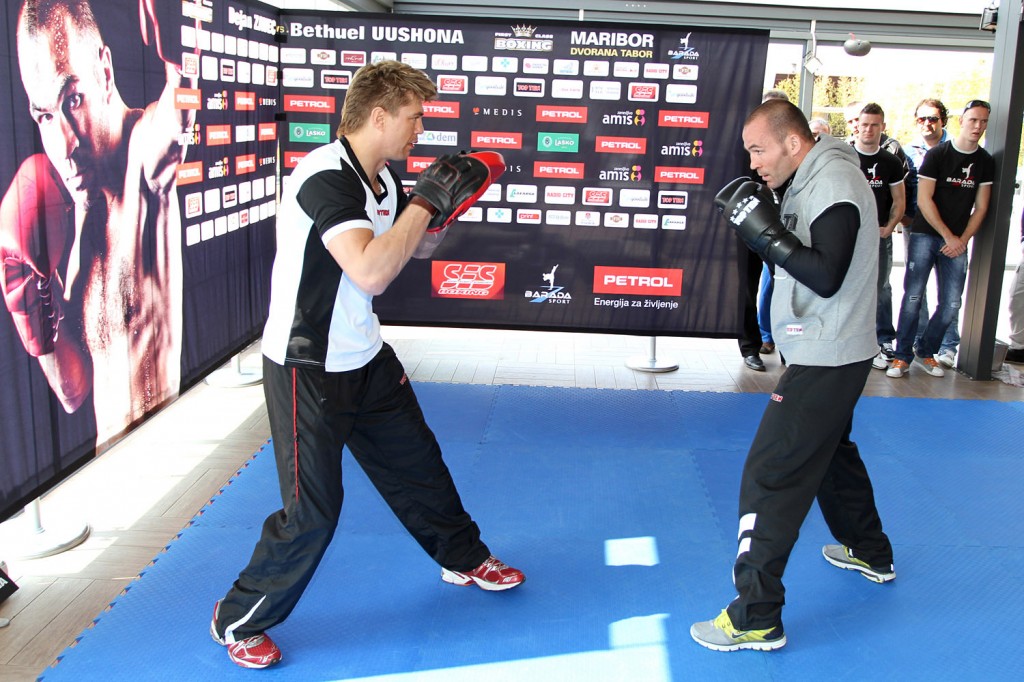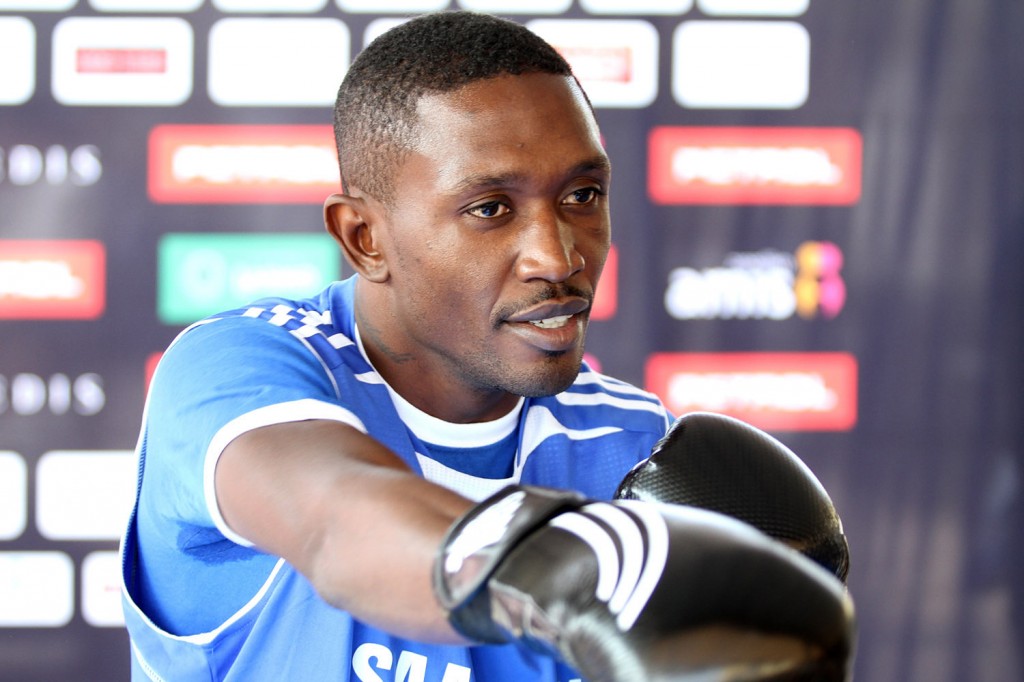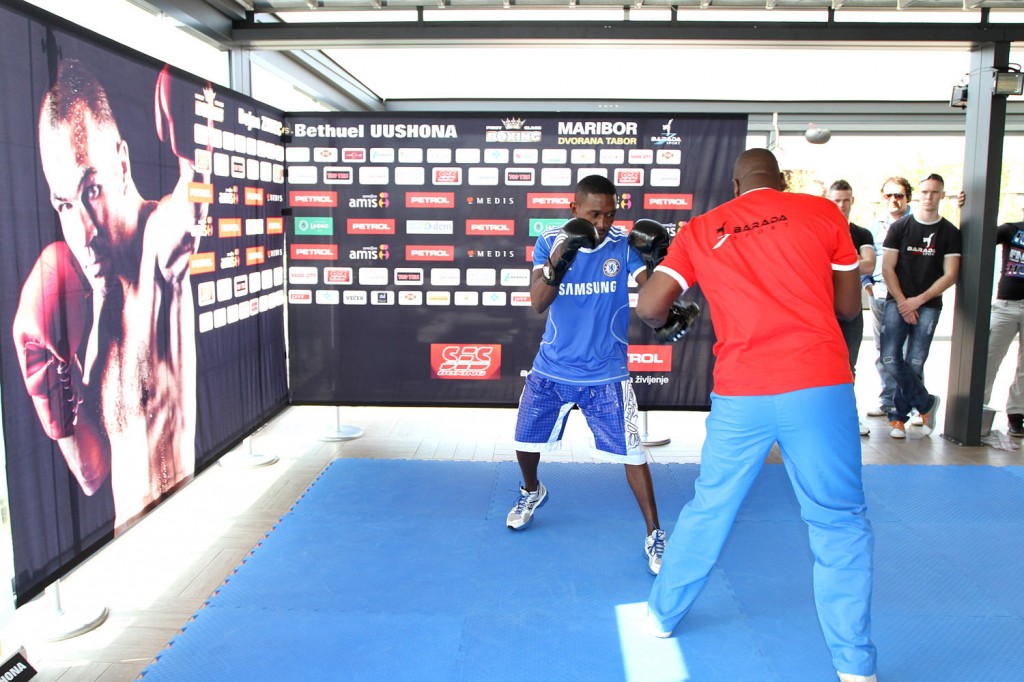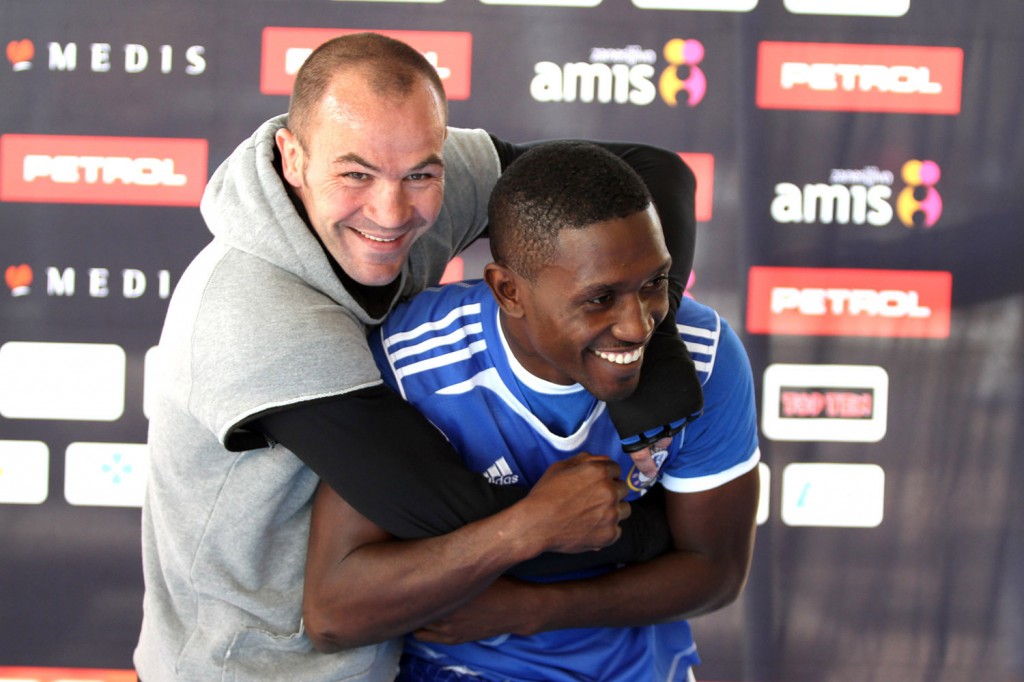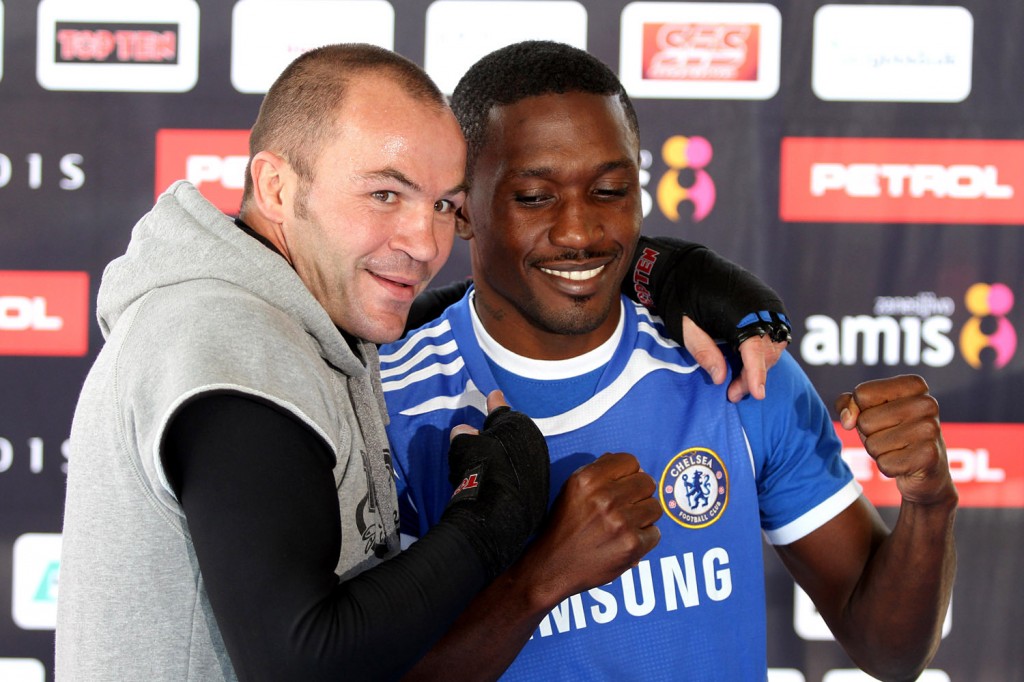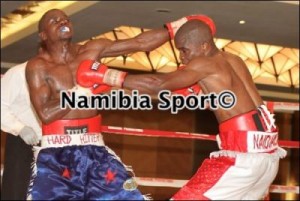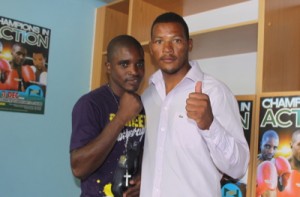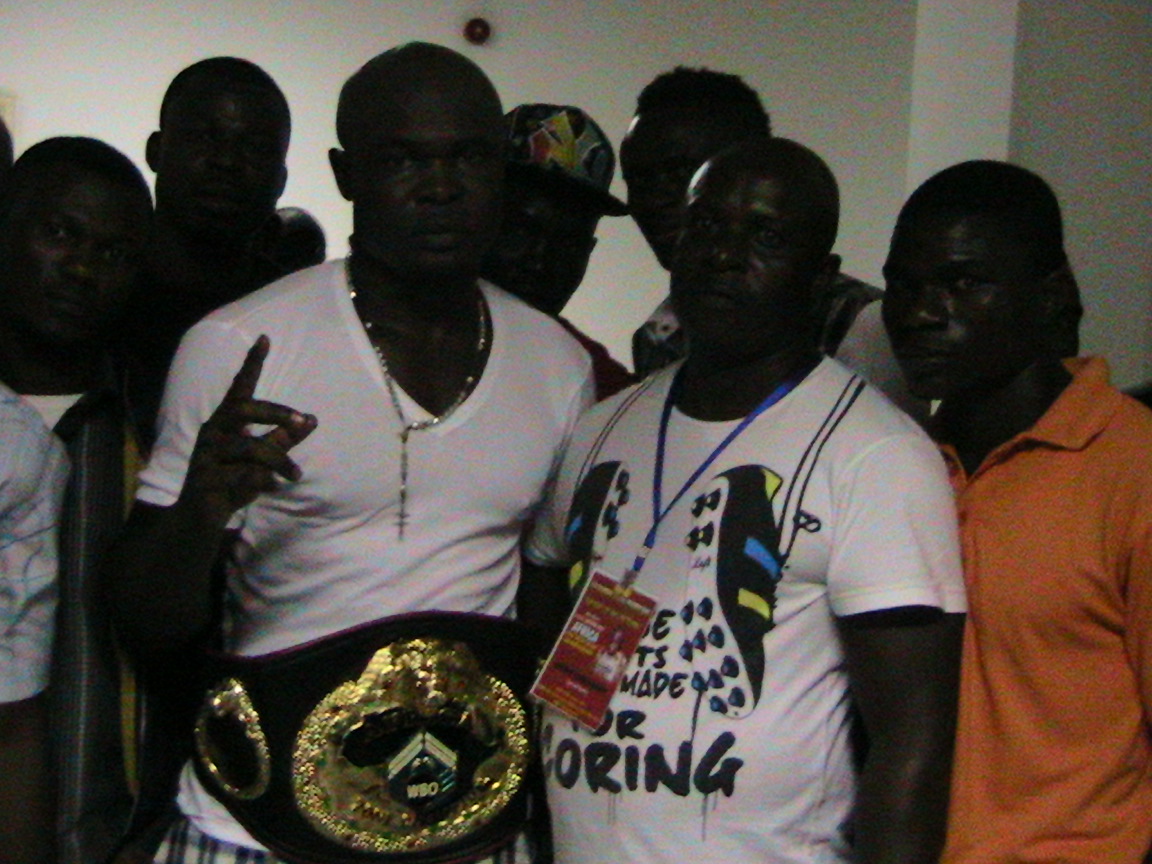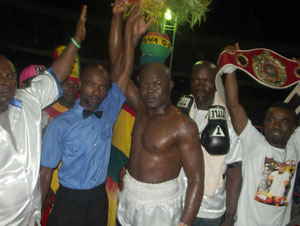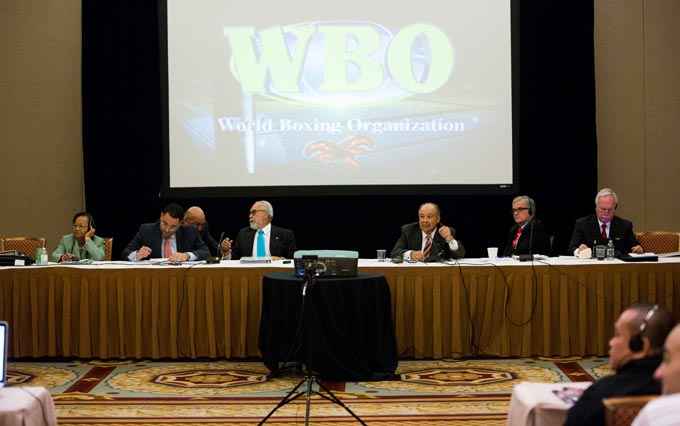 By David Finger \ Photos: Joel Colon/WBO
By David Finger \ Photos: Joel Colon/WBO
The World Boxing Organization 27th Annual Convention kicked off in full force this morning at Caesars Palace in Las Vegas as members from around the world introduced themselves and we subsequently treated to a video presentation highlighting last year’s convention in Budapest. The first order of business for the executive committee was the Championship Committee report, which highlighted the strong position of the WBO in regards to participating in championship fights. In 2011-2012 the WBO made a strong statement to the boxing world as they had an impressive 38 championship fights. However, as that number dipped to 32 in 2012-2013, the WBO was keen on making a strong statement and to bounce back. The Championship Committee was happy to report that the WBO more than exceeded expectations here.
“This year we came back fierce and strong,” commented Luis Batista Salas, chairman of the Championship Committee. “We came back with 40 championship fights. We had more championship fights than the other organizations together.” Batista Salas also commented on the growth, and strength, of WBO Women’s boxing. “We have 25 champions in the female division, and we only began three years ago with female championship fights.”
Perhaps most noteworthy for the Championship Committee was the prominent role that mandatory defenses played in WBO championship fights. “Mandatory fights are something we take very seriously,” Batista Salas added, “(The WBO) had 32 mandatory fights! This is also a record. That is also something to be proud of.”
From there President Valcarcel announced that the President’s Report would be postponed until after lunch to allow him to speak at length about some issues, including his planned announcement for the second day of the convention, in which the WBO will petition Senator John McCain and the ABC to propose amendments to the Muhammad Ali Act, proposals that would strengthen the bill and impose harsher penalties for violations. He then took a jab at the other organizations, and in particular the recent summit of boxing organizations in Cancun, Mexico that was hosted by the WBC.
“I wasn’t there to waste time in Cancun for some public relations stunt where nothing gets done,” Valcarcel said to the Executive Committee, “there were two of them in the past and nothing got done. We didn’t intend to go and waste our time.”
Valcarcel indicated a desire to continue working with local commissions and the ABC to promote safety and proposed rule changes, noting that local laws will always trump the WBO rules, and therefore it was important to work closely with these commissions. He also added that he will be meeting with the chairman of the IBF tomorrow, as the chairman will be visiting with the WBO in Las Vegas.
The Grievance Committee report followed, and in what could considered a “short and sweet” summary, the Grievance Committee chairman Alberto Rodriguez was happy to announce that there were no complaints submitted to the committee in 2014. He then discussed the process for a party to submit to the grievance committee.
A short video followed featuring WBO women’s bantamweight champion Carolina Duer, followed by Ms. Duer thanking the WBO and expressing her appreciation for the WBO. “Since I’ve been a world champion I’ve always been only a WBO champion,” Duer said to the executive committee, “I am very proud to represent this organization.”
The next order of business was the regional vice presidents report, starting with Istvan “Koko” Kovacs and WBO Europe. Kovacs was pleased to report a very successful year for the WBO Europe. “We had the pleasure to organize the second WBO congress (in Budapest) in 2013 and according to the feedback and your comments, it was very successful. Already after the 2009 (WBO Congress) we saw an increase in the nonetheless already significant activities of WBO Europe. But I must admit that I did not expect to have such extraordinary accomplishments (in 2014).”
WBO Europe increased overall, and although WBO International saw a slight decrease, much of that was attributed to tighter restrictions and higher standards. “We tightened the requirements for the belt,” Kovacs said, “we had less fights but there is higher prestige to the belt.”
However, any drop in activity to WBO International was more than made up by the increase in activity from the WBO European titles. It went from 11 fights in 2013 to 27 in 2014. The number of WBO regional titles in Europe nearly doubled from 29 in 2013 to 53 in 2014, Kovacs then discussed the increase in activity across the board for the WBO in Europe, citing the increased number of fights from the WBO Youth (from 4 to 9) and WBO female championships (from 5 to 9). In 2014 there were also 10 WBO championship fights in Europe, which was the same number as in 2013.
Kovacs then discussed the overall history of the WBO European title since 2009, noting that they have had 92 championship fights, with 54 champions, of which 13 would go on to fight for the title, and of which 3 world champions would emerge. Kovacs then discussed the financial situation with WBO Europe, noting that since 2009 the WBO Europe brought in $95,600 for the WBO in 2014 alone, thus making it the most successful year ever for WBO Europe. Since 2009 WBO Europe has collected over $325,000 in sanctioning fees for the WBO. Kovacs then took a few moments to discuss the ways in which WBO Europe took part in the WBO Kids Drug Free program.
From there WBO Asia Pacific Vice President Leon Panoncillo took the floor to discuss both the state of boxing in Asia and in Africa.
“Asia Pacific has shown positive growth, with 17 sanctioned fights since last year’s convention,” Panoncillo said. He also added that WBO Asia Pacific brought in $28,011.57 in revenue since the last convention and that he expected to sanction five more fights before the end of the year.
He then discussed the WBO Oriental title, adding that since the last convention he sanctioned 30 Oriental Championship matches, collecting a total of $44,250 in revenue since the last convention. The impressive increase in activity marked a dramatic rise in activity for the WBO Oriental title, making 2014 one of the most successful years in the history of WBO Oriental and in striking range of being the most successful year ever for the title. Panoncillo then went on to discuss the WBO Africa, noting that WBO Africa has sanctioned 16 total championship fights since the last convention and that it has raised $21,400 in revenue. Panoncillo then closed out with a discussion of the state of affairs with WBO Asia Pacific Youth, noting that the WBO sanctioned three youth titles and subsequently raised $2,525 in revenue for the WBO since the last convention.
From there WBO first vice president John Duggan discussed the China Zone development, and his hopes to see the WBO continue to grow in the region.
After Duggan’s discussion of China the WBO handed out several awards, with Marco Huck being the most notable. Huck was recently named a WBO Super Champion, and although he did not have a Super Championship belt yet, he was awarded a plague commemorating his accomplishment.
“This is a very rare and great honor,” Huck said after receiving the award, “I am very proud to be named Super Champion after 13 title defenses.”Also given awards were Osvaldo Rivero, who was named Latin America promoter of the year by the WBO. Also given an award was Patrick Teixeira, who was awarded the OMB Latino Champion of the year.
From there Jorge Molina presented his report on WBO Latino, noting that he still embraced the philosophy that “the sky’s the limit” when considering the future of the organization. Since the last convention, Molina noted that the WBO has sanctioned 30 championship fights, an increase from 25 in 2013. Of those 30 fights, 10 were held in Argentina, 10 were held in Brazil, six were held in the United States, 3 were held in Mexico, and 1 was held in Puerto Rico. Five fights were in the welterweight division, five were in the junior bantamweight division, and four were in the junior middleweight division. Molina then discussed the proud history of the OMB Latino championship, noting that the WBO Latino held an astounding 526 title fights since 1996. Of those who fought for the WBO Latino title, 134 would go on to fight for the world title, while 41 would go on to win world championships. Molina then added that since the last convention three OMB Latino Champions have gone on to win world titles as well. Molina then closed out with a video presentation that highlighted some of the greatest moments of WBO Latino, highlighting some legendary champions like Michael Carbajal and Ener Julio.
The executive committee took a short recess for lunch, and upon returning from lunch, resumed with the treasurer’s report. WBO CPA Jaime Ceballero advised that the strength of the WBO financial situation, adding that the WBO had $1,242,724 in savings, an increase in revenue of 302%. The increase in revenue was the largest ever in the history of the WBO. He then added that the WBO accounts included nearly $2,000,000 when added with the accounts of all of the regional organizations. He then added that, if the WBO were to pay off all of their debts today, they would still hold in excess of a million dollars. The positive report prompted President Valcarcel to ask if the WBO could spend more money on the WBO Kids Drug Free program. Unfortunately there was one area where regional organization in which WBO didn’t have tremendous success initially in 2014: the NABO.
The NABO had recently changed leadership in February of 2014 after reporting substantial losses in 2013 and early 2014. New NABO Vice President Jose Izquierdo, however, had done much to turn that ship around since taking over. One area of strength was the increase in fights on “important” cards such as the Manny Pacquiao-Timothy Bradley PPV card, or the recent Floyd Mayweather-Marcos Maidana PPV in 2014. Since taking over the helm at NABO, Izquierdo has sanctioned 12 NABO title fights and 14 Inter-Continental title fights, helping fuel a dramatic turnaround for the NABO financially.
“There is a dramatic decrease in the amount owed,” Izquierdo said, “over 46% decrease. And a 790% increase for cash on hand.”
Izquierdo has taken a much more inclusive approach to spearhead the NABO’s sudden resurgence. “I’ve called local commissions to have them recommend fighters to be considered and become part of the rankings of the NABO,” Izquierdo said.
The positive changes in the direction of the NABO prompted vice president Luis Batista Salas to sing Izquierdo’s praises during his presentation. “He has changed the face of the NABO,” Batista Salas said of Izquierdo.
From there President Francisco “Paco” Valcarcel presented the WBO President’s Report, and as expected, he took time to again discuss a topic that has become his cause belle: the proliferation of titles in boxing. Valcarcel first commended Jose Izquierdo on scoring a knockout with WBO’s presence on social media like Facebook.com and Twitter. Noting how WBO’s Facebook page went from 7,000 followers to 334,996 followers in only one year, he commended Izquierdo for helping turn WBO boxing into one of the most popular boxing pages on the internet.
“It is the fastest way to get resolutions out and give the public an outlet (to communicate with us).” Valcarcel said.
Valcarcel then spoke time to speak about the WBO champions, noting that “the WBO is very lucky, because we have the money makers. We have the best champions around the world.”
He then took a jab at a rival organization, noting that former WBO middleweight champion Peter Quillin was making more money in his title defenses than a rival organizations champion who had become a regular fixture on television. He also noted that at the bantamweight weight class, the WBO recently received a $600,000 purse bid from a promoter for a title fight and that Marco Huck is highly successful in the cruiserweight division, earning tremendous paydays as a cruiserweight. Valcarcel then took another jab at the rival organizations and the proliferation of numerous “copper, platinum, silver, and aluminum” titles.
“We have the WBO (world) champion and that’s it! We call Klitschko a Super Champion and that’s it. We don’t have anyone (other champion) behind him. I want to be polite, but I have to speak the truth. Who cares about Alex Povetkin? The champion is Klitschko!”
Explaining the difference between the WBO and some of the other sanctioning organizations in how they recognize champions.
“We have regional titles, but others, they have 3, 4, 5 titles.” Valcarcel added. “We only have one Latino Champion…that means the WBO Latino title carries prestige. We want to keep it that way. We don’t want to have a bunch of titles.”
From there discussions turned to recent litigation involving the WBO, including a case in Puerto Rico that threatens the tax-exempt status of the WBO.
“Our financial success has attracted the attention of inland revenue in Puerto Rico,” WBOs legal counsel associated with the case told the commission, “due to new tax laws in Puerto Rico and the recession in Puerto Rico, and the degradation of Puerto Rican bonds. Puerto Rico has imposed further taxes to cover this.”
Although the WBO is a recognized non-profit according to the United States federal government, the government of Puerto Rico has refused to give full faith and credit to this designation, and their decision had initially been upheld by the Puerto Rican court of appeals. Although the Supreme Court of Puerto Rico initially refused to hear the case, the WBO remained confident that they still had a strong appeal.
Jose Izquierdo made a motion to give the President the authority to unilaterally name a committee to take on this issue at his discretion, a motion that was passed unanimously.
The second issue discussed was the issue of a trademark registration in Europe, and a fraudulent company that sent an unsolicited letter demanding payment to “register” the WBO trademark. This letter was disregarded when the WBO European Council assured the executive committee that the WBO trademarks are registered for the next several years.
Closing out the first day of the meeting, President Valcarcel again discussed the issue of the WBO’s refusal to take part in the joint summit of boxing sanctioning organizations held in Cancun earlier this year.
“We can work with other commissioners regarding safety,” Valcarcel said, “that doesn’t mean we have to meet up (with rival organizations) for it. I never heard of Coca-Cola and Pepsi having a meeting together. You have your own flavor, we don’t have to meet anyone, we don’t have to go anywhere because we are very busy. We are busy working with kids, enhancing the image of the sport. We had a meeting in 2011 and we talked about the same issues. We are doing much more than other organizations. Did you hear of other organizations doing as much for kids?”
WBO European member Markus Aslani then chimed in, “We stick to our rules and we don’t take part in the inflation of titles.”
“I think the main problem in boxing is that you have more than one champion in each division,” Valcarcel added.
“One organization that shall remain unnamed had 41 champions in 17 weight classes,” Jose Izquerdo added.
“We have the support of the most respected boxing writers of the world,” Valcarcel added, “I think in boxing, honesty is the best policy. If we are recognized as the honest organization, we are going to have success.”
From there President Valcarcel added that he will discuss proposals to Senator John McCain and Harry Reid in regards to amendments to the Muhammad Ali Act, and that the WBO would “not tolerate corruption in its ranks.”
Rounding off the opening day was a presentation on the still developing China Zone, which discussed its plans for 2015. The event closed off with a cocktail party that evening, and is set to resume tomorrow at 8:30 AM.

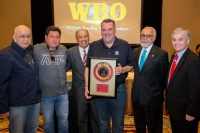

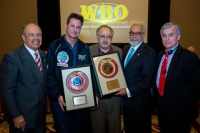
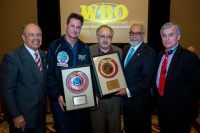
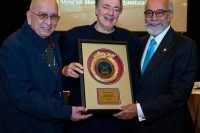
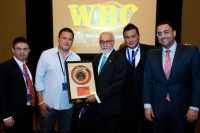
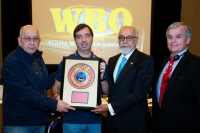




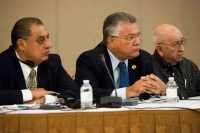
http://www.fightnews.com/Boxing/giant-wbo-2014-convention-day-one-report-266381
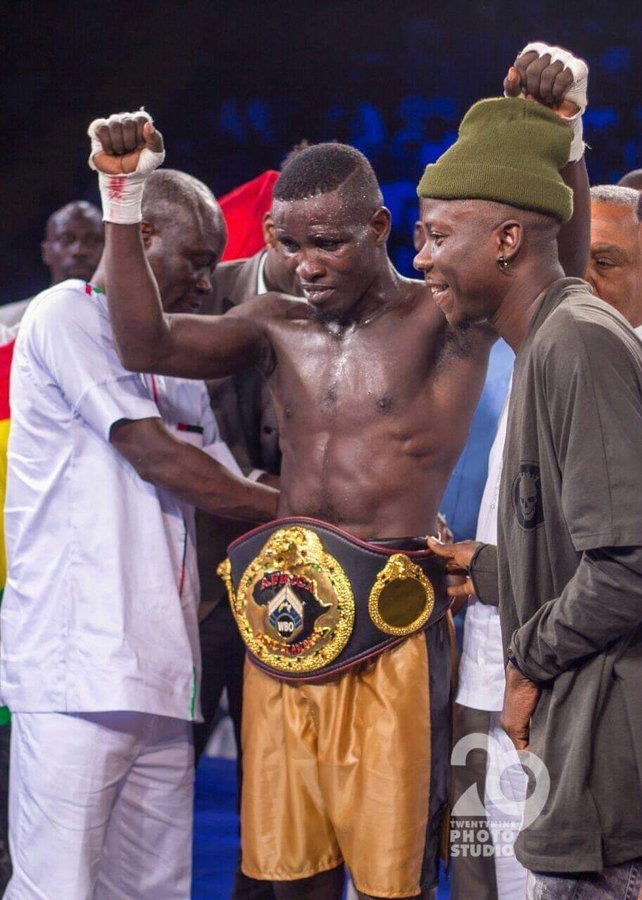
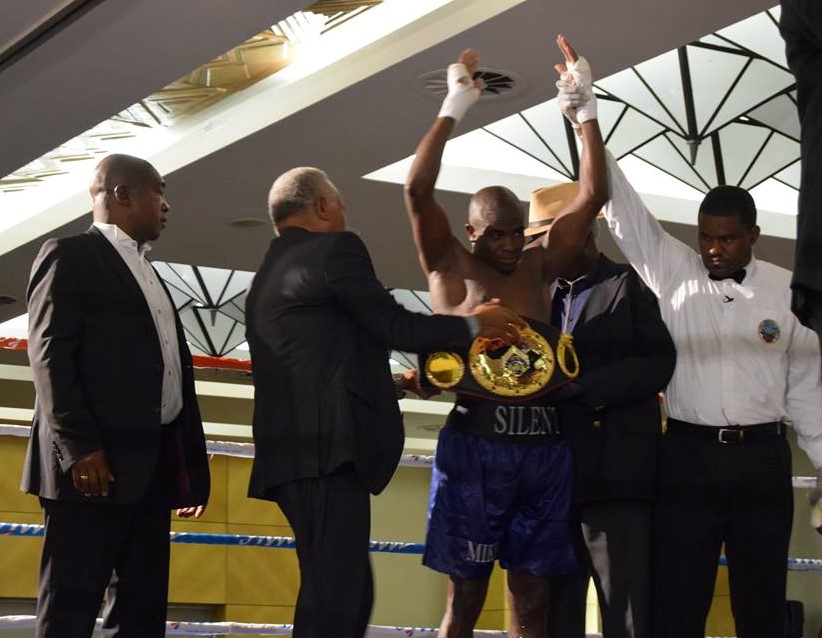

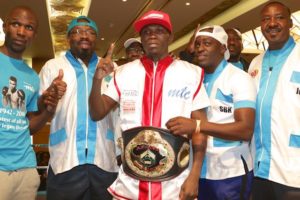














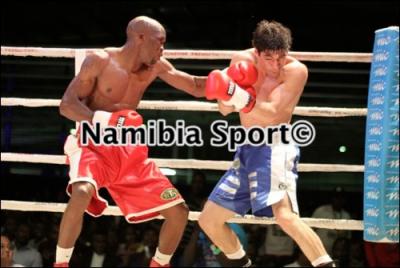
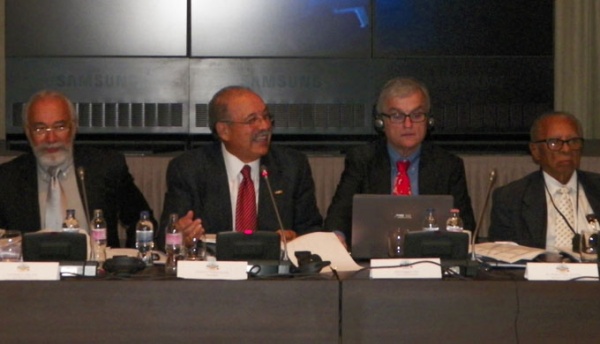
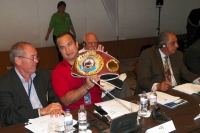

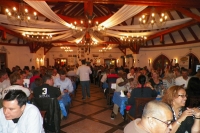
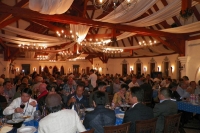
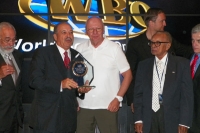
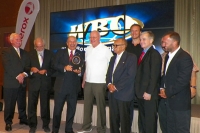
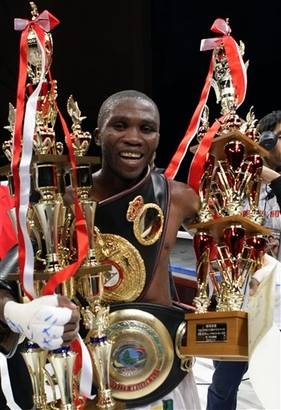
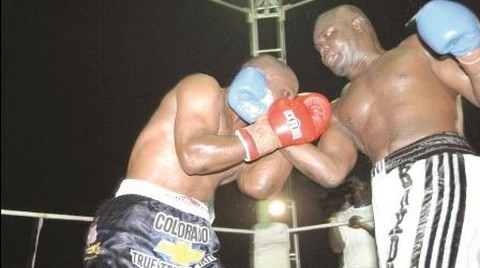

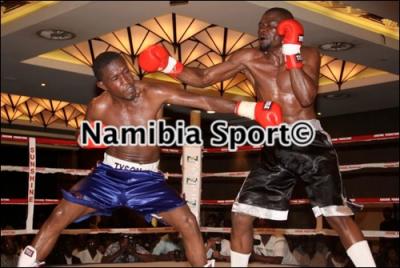
 Tornado Sánchez a concluir preparaciónof Kenya at a Boxing Bonanza scheduled to take place at the Windhoek Country Club on October 12.
Tornado Sánchez a concluir preparaciónof Kenya at a Boxing Bonanza scheduled to take place at the Windhoek Country Club on October 12.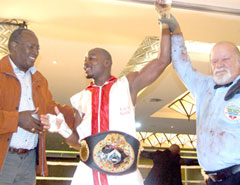

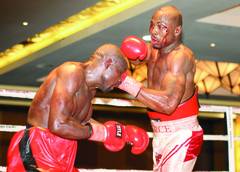





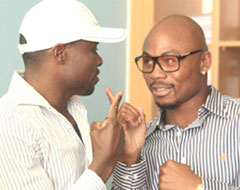
 WINDHOEK – He might have been out of action for a considerable time but that does not dampen the spirits of Namibia’s flamboyant super middleweight boxer and World Boxing Organization (WBO) Africa champion Wilberforce Shihepo, ahead of his eagerly awaited clash against compatriot Johannes “Tito” Mwetupanga.
WINDHOEK – He might have been out of action for a considerable time but that does not dampen the spirits of Namibia’s flamboyant super middleweight boxer and World Boxing Organization (WBO) Africa champion Wilberforce Shihepo, ahead of his eagerly awaited clash against compatriot Johannes “Tito” Mwetupanga.





